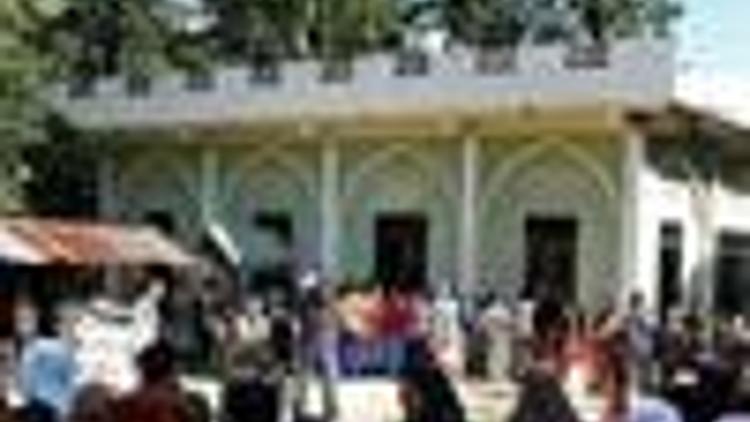Gunmen kill 10 at mosque in southern Thailand
Güncelleme Tarihi:

PATTANI - Gunmen opened fire on a mosque in southern Thailand during evening prayers, killing at least 10 people and wounding another 19 in the violence-plagued region, police said.
The attack Monday was one of the deadliest incidents since an Islamic separatist insurgency was launched in
Five or six men shot automatic rifles into the mosque in Narathiwat provinces Joh-I-Rong district on Monday, said police Lt. Col. Somjai Singkliang.
However, the Web site of the newspaper The Nation cited Army spokesman Col. Parinya Chaidilok as saying there were only two attackers. The newspaper also reported that an 11th person had died en route to hospital.
Among those who died at the mosque was the imam, or prayer leader, said Somjai, who added that most of the 19 people wounded in the attack were in serious condition.
Narathiwat, Pattani and Yala provinces, where virtually all the violence has occurred, are the only Muslim-majority provinces in predominantly Buddhist Thailand. Southern Muslims have long complained of discrimination, especially in education and job opportunities.
Last week two teachers, one eight months pregnant, were killed in the same province in an attack attributed to the insurgents. The deaths triggered intense anger among the areas Buddhist community.
Security forces sometimes blame the insurgents for attacks on Muslim individuals and institutions, claiming they mean to stir up hatred to boost their cause and trigger sectarian strife.
"They are trying to make it look like the attackers are the authorities, because Muslims would apparently not shoot inside a mosque. But it’s impossible that it is the work of the military," The Nation quoted Army spokesman Parinya as saying about Mondays attack.
Very rarely does any group claim responsibility for any attacks on either community.
Earlier Monday in the same province, nine soldiers were wounded when the pickup truck in which they were traveling was ambushed, reported the state Thai News Agency.
It said a remote-controlled roadside bomb destroyed the vehicle, and attackers then opened fire on the solders before fleeing.
The attacks came on the same day Prime Minister Abhisit Vejjajiva was on an official visit to
Southern Thai Muslims are ethnic Malays, a background shared with most people just across the border in northern
Insurgent attacks - which include drive-by shootings and bombings - are believed intended to frighten Buddhist residents into leaving the area. They also target Muslims whom the rebels believe have collaborated with the government, including soldiers, police, informants and civilians.
The identity and precise goals of the insurgents have never been publicly declared. They pursue an ill-defined agenda that sometimes seems to call for a separate Islamic state.
A massive government counterinsurgency effort has slowed the pace of attacks but has shown little sign of ending the violence. Abhisit announced in March that 4,000 more soldiers and other security personnel would be deployed to the region, supplementing more than 60,000 - including local part-time forces - already there.

